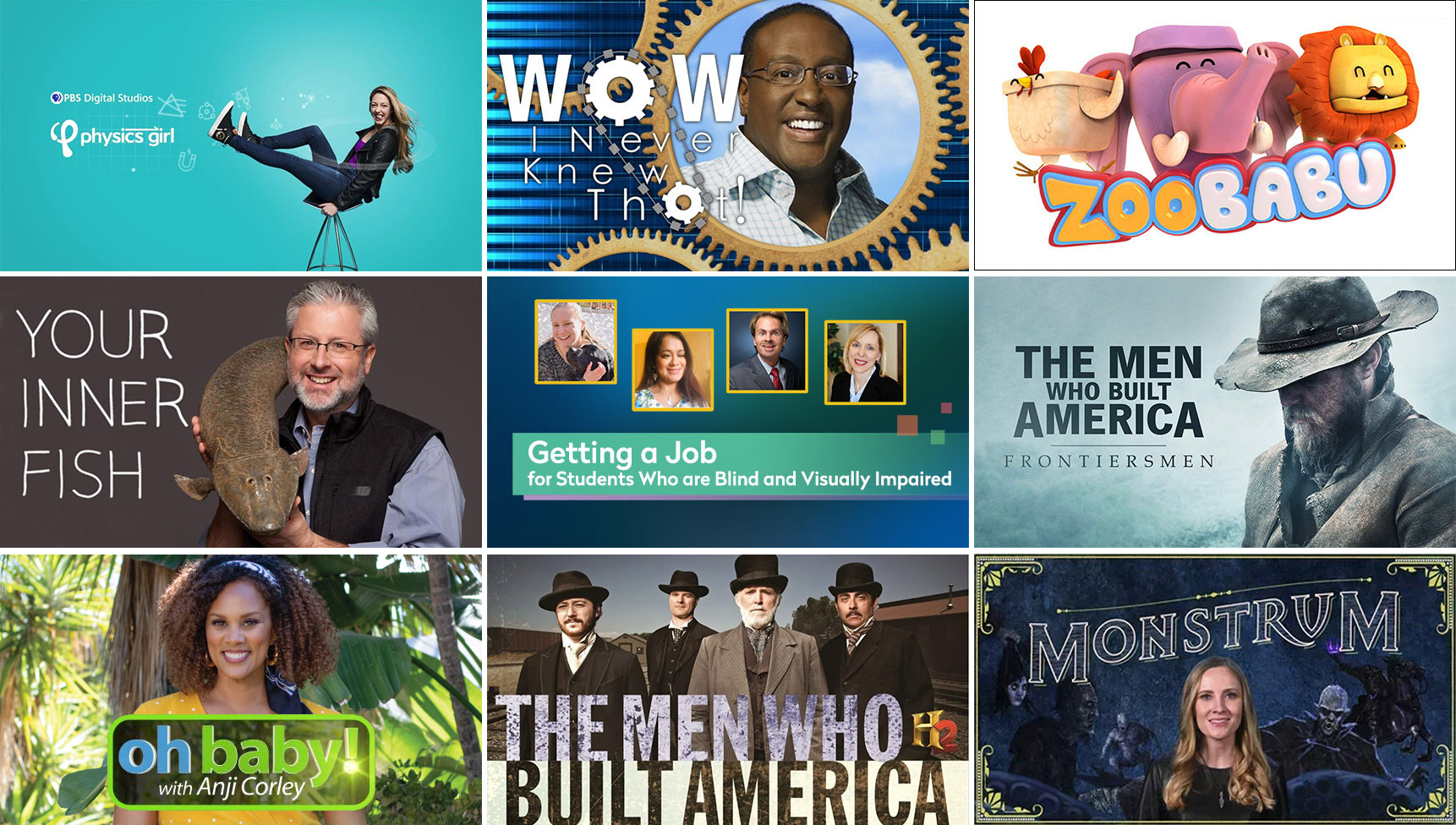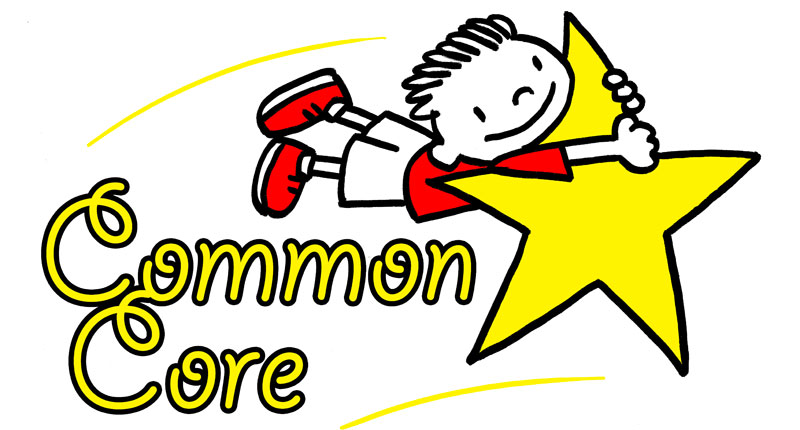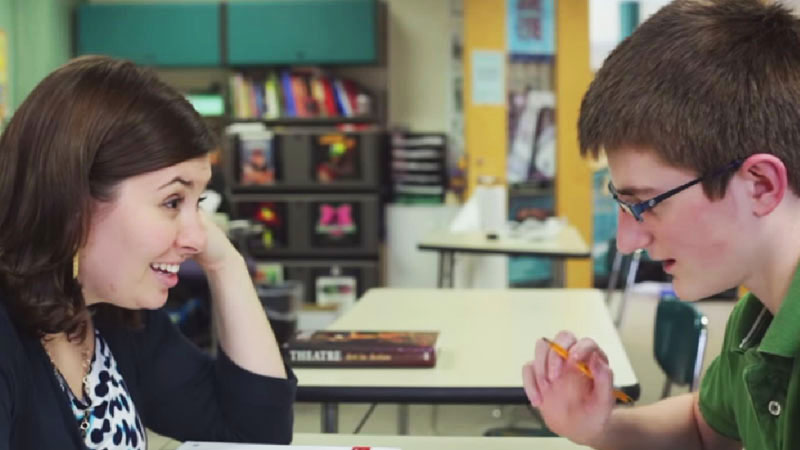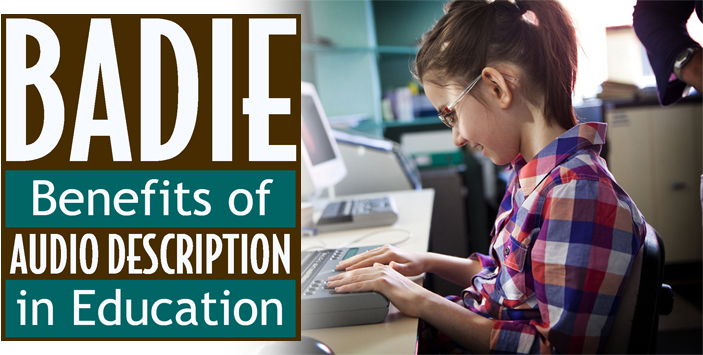16 Learning Center results found.

Learning from Television: A Research Review
Traditionally, educators have perceived television as not particularly beneficial to literacy development. Concerns were fueled by findings suggesting that, with the introduction of television, people spend less time reading books, and reading scores decline. However, as our society is striving to make adjustments to the decline in literacy skills and new ways of learning and teaching are being explored, educators are becoming interested in exploring the educational potential of television and video for teaching basic literacy skills such as reading, writing, and math. By Babette Moeller, October 1996.
about research, educators

Educators Flocking to Finland, Land of Literate Children
Imagine an educational system where children do not start school until they are seven, where spending is a paltry $5,000 a year per student, where there are no gifted programs, and class sizes often approach 30. A prescription for failure, no doubt, in the eyes of many experts, but in this case, a description of Finnish schools that were ranked the world's best in 2003. Finland topped a respected international survey, coming in first in literacy and placing in the top five in math and science. How did Finland, which was hobbled by a deep recession in the 1990s, manage to outscore 31 other countries, including the United States? Read this article to learn the answer. One factor listed: "Children grow up watching television shows and movies (many in English) with subtitles. So they read while they watch TV." By Lizette Alvarez, April 9, 2004, The New York Times.
about literacy, research


Amy's Start Toward a Successful Future: Why is It Important to Talk About the Future?
When I was in 2nd through 4th grade, I started attending meetings to plan for my
future. My mom wanted me to be involved and listen to people in my meeting. In
the meeting, I felt so confused and overwhelmed when I listened to their
discussions about my future. In 5th grade, I was still attending the IEP (in Texas
they are called ARD) meetings to discuss my future and how to improve my
education. By this time, I was very upset and still did not understand why I had to
be involved in the meeting every year! My mom tried to explain why I had to
attend the meeting and why it was important, but I still did not want to attend
the meeting. Then, later when I was in the 6th through 7th grade, I finally started
to participate and discuss issues on how to improve my education and plan my
future a little bit at a time. Just in case, I had my advocate there to take over and
tell them about my classes if I needed help.
From Amy Johnson about educators, parents

Hundreds of New Accessible Educational Videos You May Have Missed at DCMP
DCMP is continually adding new accessible videos and series, and you may have missed some. These lists can point you toward finding these new educational videos from many of the top content producers, including PBS Digital Studios, Teen Kids News, Litton Entertainment, the Field Museum, Bullfrog Films, PBS Learning Media, Howard Hughes Medical Institute, Cinefete, and Films Media Group. Check the "New Releases" feed on your Account Dashboard to keep up with all new arrivals!
From about topic-playlist

Common Core: DCMP is Your Key Resource
In an effort to ensure our students are college and career ready, the National Governors Association Center for Best Practices and The Council of Chief State School Officers, in collaboration with other stakeholders in the education community, created a framework known as the Common Core State Standards (CCSS). To date, all but five states and the U.S. Territory of Puerto Rico have adopted these standards.
about educators

Summertime Cool: Ideas to Enrich and Teach
"What did you do on your summer vacation?" This was a familiar writing assignment for many people when they were growing up. I remember, don't you? The end of school is around the corner, and summertime fun will be here before we know it. Let's support students and their families in their building of great summer vacation memories with new ideas that inspire, as well as teach.
From Mary Ann Siller about educators

Women's History Month: Writing Women Back into History
Although women have been shaping human history since the dawn of civilization, the concept of Women's History Month has its roots firmly implanted in the date March 8, 1857, when women from New York City factories protested untenable working conditions. As recently as the 1970s, the influence of women in history was a virtually nonexistent topic in public school curricula or even an element within general public consciousness and discourse. To address this situation, the Education Task Force of the Sonoma County (California) Commission on the Status of Women recognized "Women's History Week" during one week in March in 1978. In 1981 Sen. Orrin Hatch (R-UT) and Rep. Barbara Mikulski (D-MD) cosponsored a joint Congressional resolution proclaiming a national Women's History Week. In 1987 Congress expanded the celebration to a month, and March was declared Women's History Month.
From Kelly Gorski about history, educators

Expectations in Transition Meeting-Encouraging Student Participation
Transition planning for high school students has been going on in some formal way for over
three decades within the school system. Some states set the transition age at 14, and others
started the planning at age 16. In most cases, it was addressed as a separate process with its
own set of paperwork from that of the Individual Education Plan developed in an IEP meeting
where academic progress, classroom accommodations and other student needs were
addressed. The Individuals with Disabilities Education Act (IDEA) places emphasis on the importance of the transition planning process, with clear guidelines as to how planning should take place.
From Theresa Johnson, M.Ed. about transition, educators, parents, deaf

LiL BADIE Contest
“Working on thinking critically about audio descriptions for this program has built Mae’s confidence. She has more to contribute when peers are talking about shows, YouTube, social media, and film, as she can now very clearly articulate access issues and why she likes some shows better or doesn’t know about others that may be very popular. Very cool! Thank you all, again.”
– Katie Lane-Karnas, teacher and mother of Mae Lane-Karnas, 2023 BADIE Grand Prize Winner
From about description, listening-is-learning